The countries where the world’s waste goes
Waste not wanted
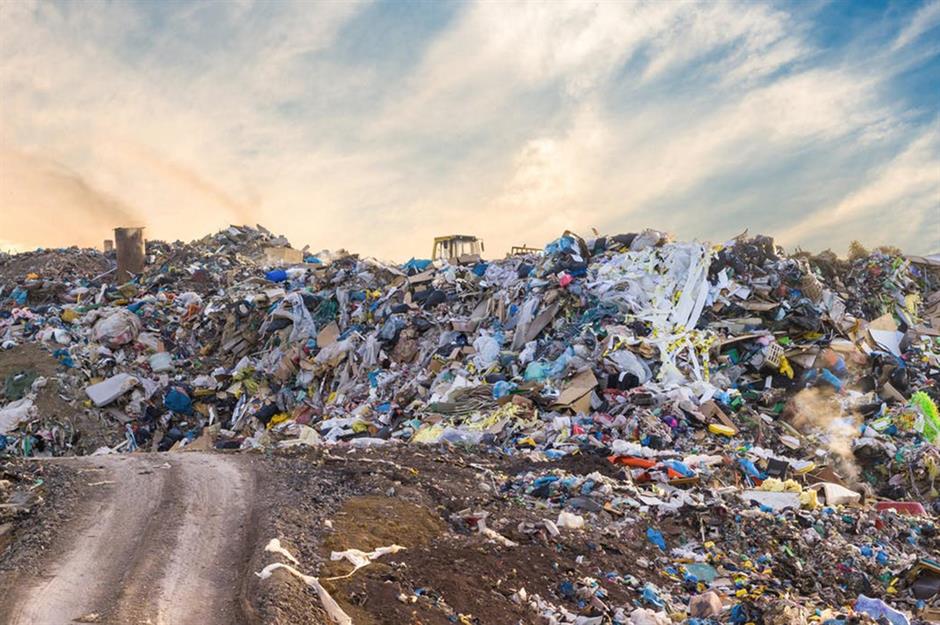
China was once the world’s biggest importer of plastic waste. But in January 2018, it enacted a new law that banned the import of 24 types of solid waste, including paper and plastic. Thailand followed suit by announcing it would ban all plastic waste imports by 2021.
Since then, the burden has been shifted to a wave of developing countries. With the World Bank estimating that annual waste generation could increase by 70% between 2016 and 2050, read on to find out which countries are facing a rising tide of rubbish – and how they’re fighting back.
The global plastic trade
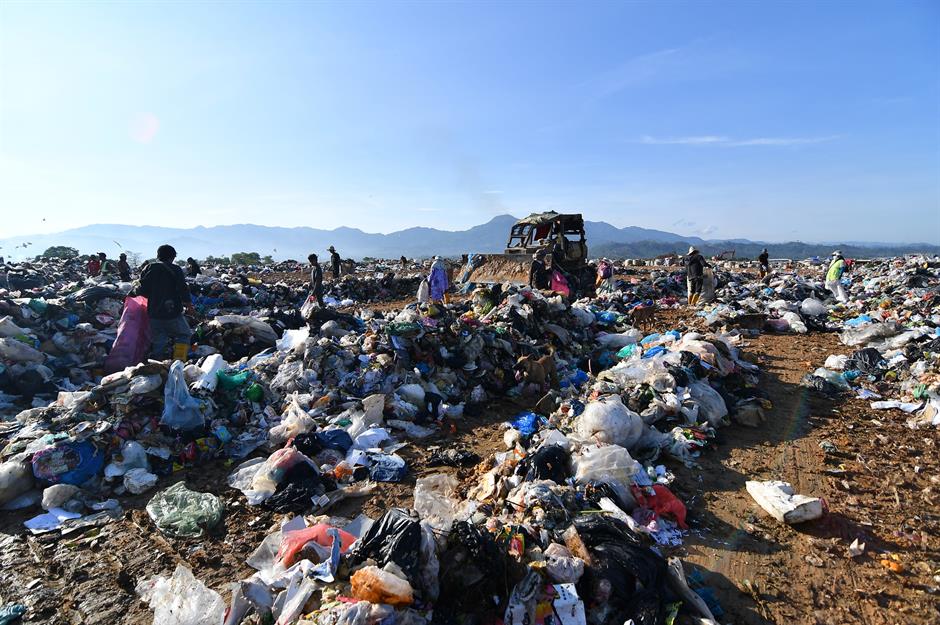
For most wealthy countries, shipping recyclable plastic off to poorer nations is cheaper than recycling it on home turf.
Yet plastic is inherently difficult to recycle. There are many different types, which all need to be treated in specific ways – a milk bottle can’t be processed in the same way as a yoghurt pot, for example. This means that items that are recyclable can start to pile up in landfill or get incinerated if they're not properly managed.
Malaysia
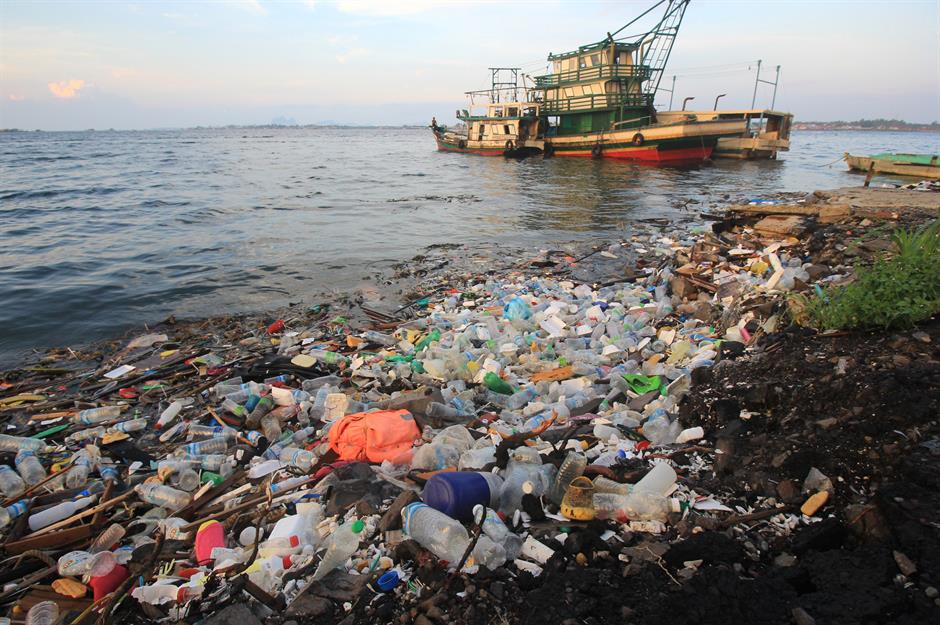
This small Southeast Asian nation found itself inundated with plastic following China’s law change and quickly became the world’s biggest scrap plastic importer.
Malaysia's plastic waste imports were 168,500 tonnes throughout the whole of 2016 compared to 316,600 tonnes in 2017. However, in the first half of 2018 alone, this figure had skyrocketed to 456,000 tones. The country struggled to cope and much of the plastic was burnt in the open, causing adverse health effects.
Sponsored Content
Malaysia
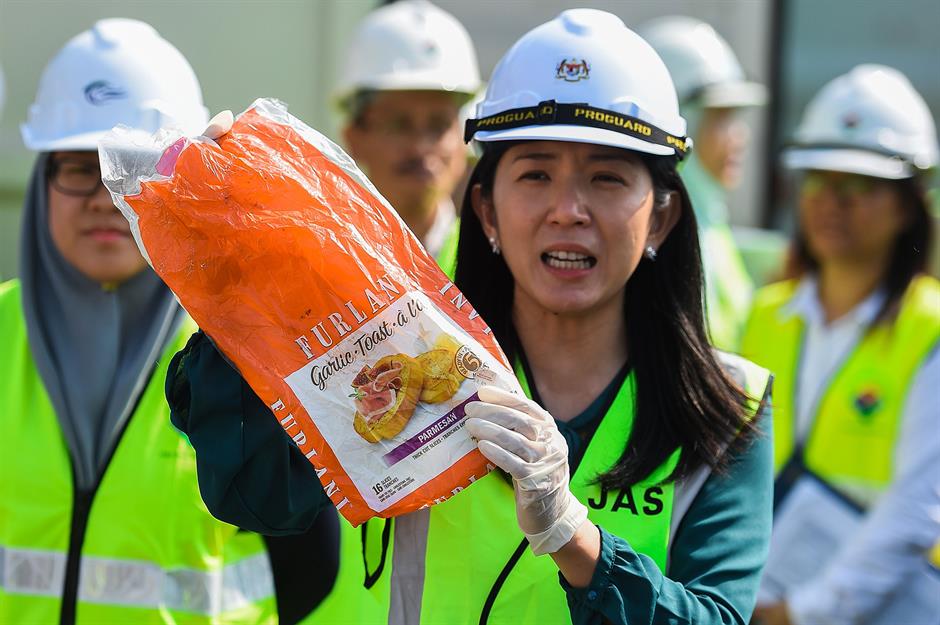
Unsurprisingly, Malaysia is taking a stand. Since discovering that 13 countries, including the UK, Canada, China, and Singapore, had sent unrecyclable waste to the country in 2018 and 2019, Malaysia has been sending it back.
Environment Minister Yeo Bee Yin (pictured) insisted in January 2020 that those who wanted to make Malaysia the world’s trash can “dream on”, stating that the country would be sending back 110 containers of waste by the middle of the year. By this point, Malaysia had already repatriated 4,120 tons (3,737 metric tonnes) of waste, and closed 200 illegal recycling units.
Malaysia
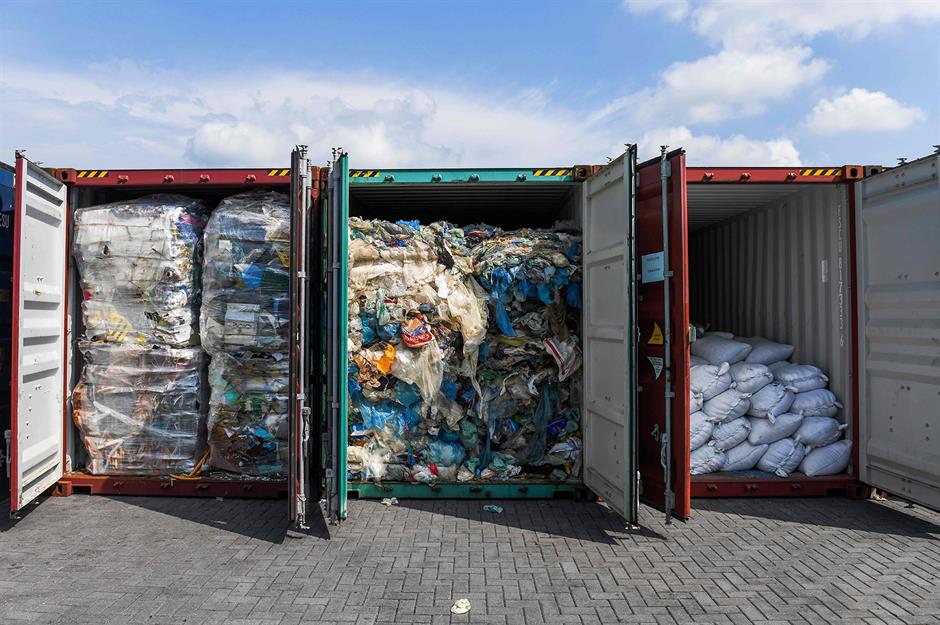
The waste had been labelled as recyclable plastic but included CDs, cables, contaminated milk cartons, and electronics.
As well as returning the rubbish to its rightful owners, Malaysia is planning to clamp down on imports in the future, with Yeo Bee Yin recently stating: "Our position is very firm. We just want to send back [the waste] and we just want to give a message that Malaysia is not the dumping site of the world".
But despite sending back 267 containers of illegal waste by April 2021, the Environment Agency (EA) revealed that 81 containers of rubbish had yet to be repatriated, including three that were destined for England.
Vietnam
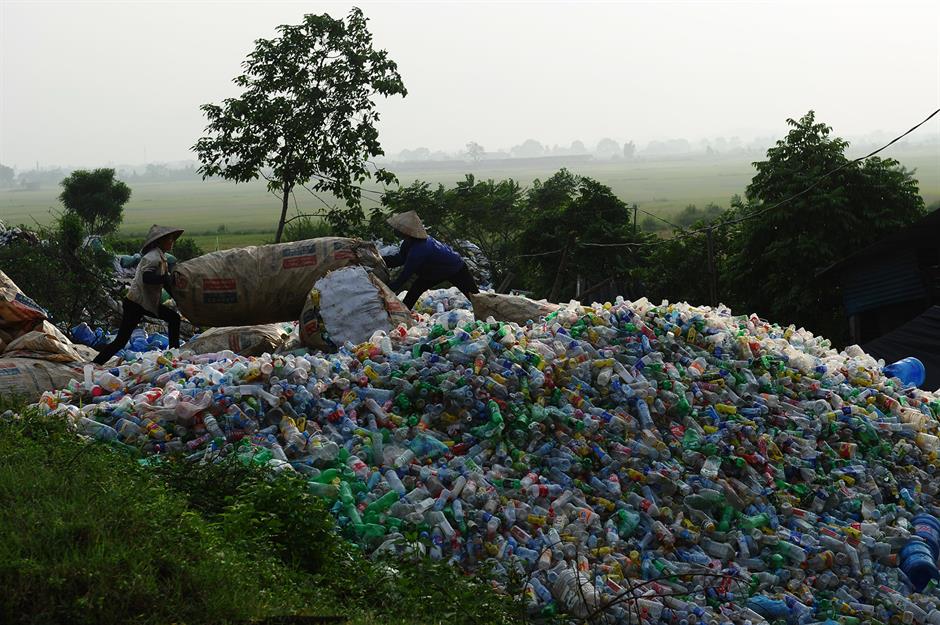
Vietnam is a key port of call for countries wishing to offload their waste, with the country becoming one of the biggest importers of plastic waste globally in 2018, according to the 2021 Plastic Atlas.
But now it’s inundated and recyclers can’t keep up. In spring 2019, it was reported that there were almost 21,600 shipping containers of plastic waste just sitting at ports, 44% of which had been there for longer than three months.
Sponsored Content
Vietnam
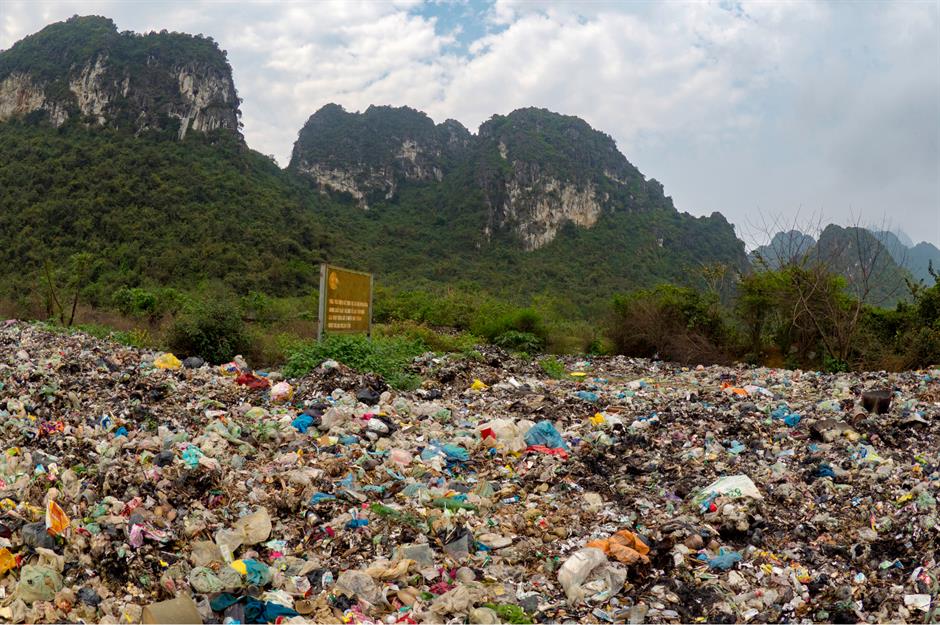
Scrap plastic might benefit waste processors who recycle it for use in Vietnam’s petrochemical industry, but the sheer volume is too high and causes a number of environmental issues.
Plus, with authorities reporting that around 90% of domestic waste goes to landfill or is incinerated, there are fears that imported plastics won’t end up going to the recycling industry and will add to the country’s mounting rubbish problem instead.
Vietnam
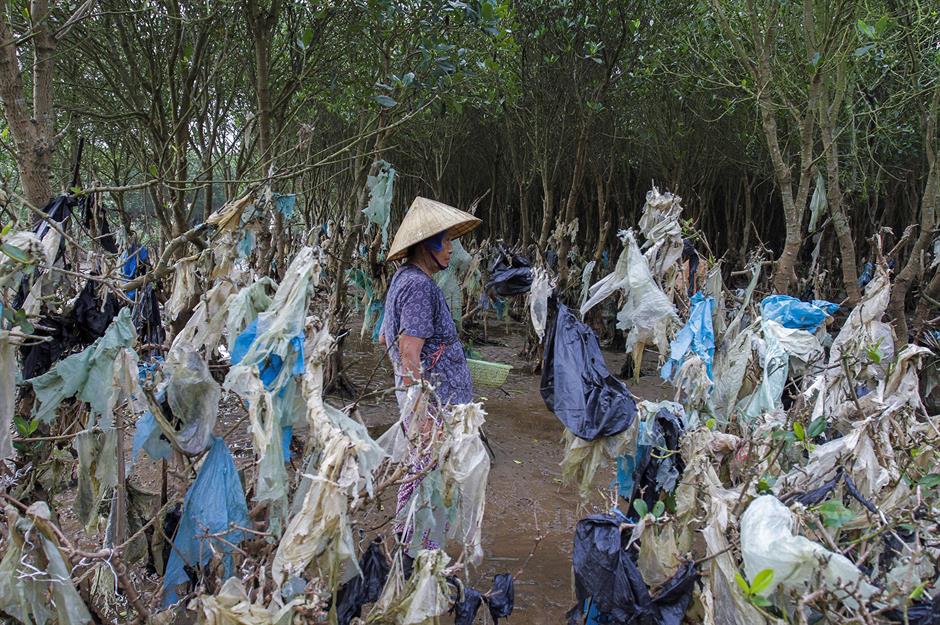
Vietnam is fighting back and has created new legislation to tackle the issue. The country will no longer issue new licences to waste importers and has also said it will crack down on illegal shipments by launching criminal investigations into those who violate the law.
In 2018, the Vietnamese government followed China and Thailand's lead and announced that it will ban all imports of plastic scrap by 2025. The move hasn't been resoundingly popular, however, with the steel and paper industry arguing that they need scrap plastic, paper, and metal to use as feedstock.
Indonesia
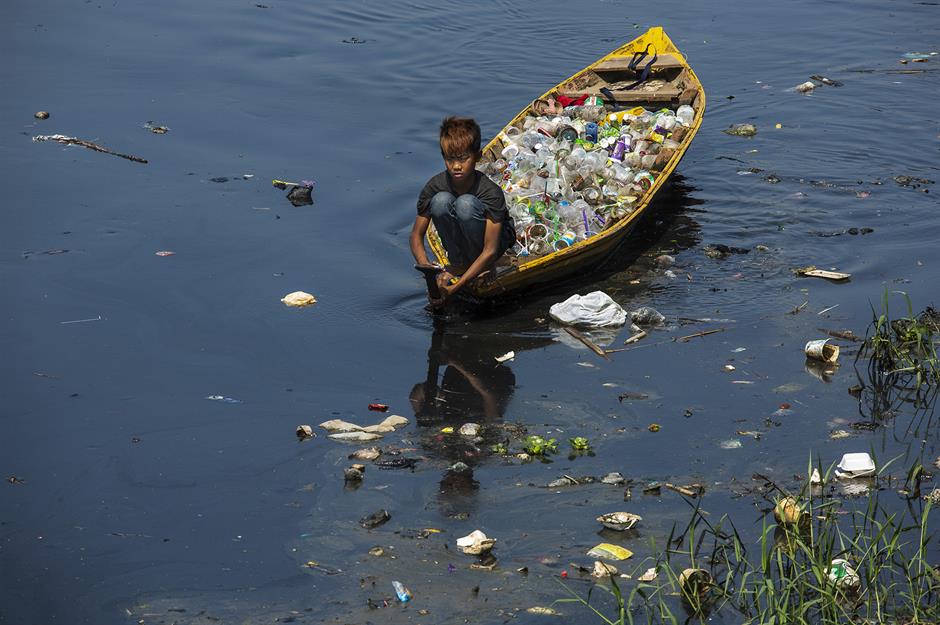
Indonesia has also become a prime spot for developed countries looking to dump their plastic waste. Imports rose by 141% in 2018 to 283,000 tonnes, with the main exporters including Australia, Canada, the US, and the UK. By 2025, it's expected that the flow of plastic waste into Indonesian oceans will have increased by 30% to a staggering 800,000 tonnes.
Yet the country is toughening up on regulations in a bid to ensure imported plastic is non-contaminated and recyclable. In July 2019, Indonesian officials said that imports would have to come from registered exporters, explaining that customs officers would tighten checks on imports and that there would be harsher punishment for breaking the rules.
In March of that same year, the country formed the Indonesia National Plastic Action Partnership (NPAP) to "forge a collective path towards a plastic pollution-free Indonesia".
Sponsored Content
Indonesia
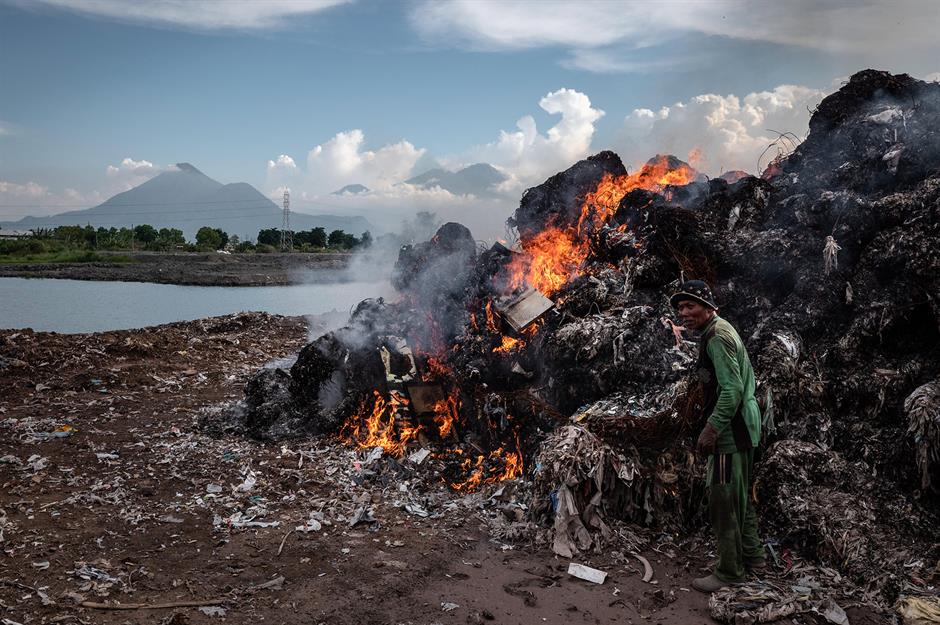
It’s not just plastic imports that Indonesia has to worry about, however, as the waste is inadvertently polluting the country's paper imports, too.
When we put waste in our recycling bins in the West, machines separate the different materials but can easily confuse small pieces of plastic with paper. When paper bales are shipped abroad and workers find pieces of plastic, they often throw them onto the street, creating piles of rubbish that are then usually burnt.
Indonesia
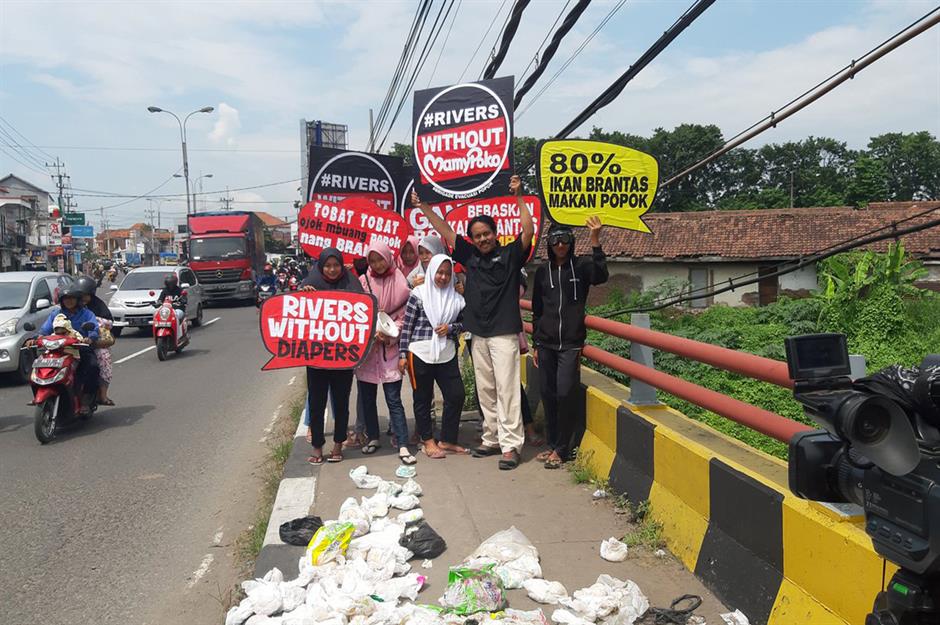
But it’s not all honest mistakes. In April 2019, one month after the formation of NPAP, it emerged that Australia had smuggled many larger plastic items in with paper for recycling – including nappies, food wrappers and plastic bottles.
While the Indonesian government imposed restrictions on the type of plastic that can come in from Western countries, activists such as the group Ecoton have campaigned for the waste to be sent back and for restrictions to be tightened.
The good news is that Indonesia and Australia have now partnered to tackle plastic pollution in the Indo-Pacific. In March 2022, Australia's Commonwealth Scientific and Industrial Research Organization (CSIRO) and Department of Foreign Affairs and Trade (DFAT) announced the launch of the Plastic Innovation Hub Indonesia project.
CSIRO has estimated that there is currently between five billion and ten billion pieces of plastic on Indo-Pacific coastlines alone, and aims to "turn this environmental challenge into an economic opportunity by changing the way we behave, and how we make, use, recycle or dispose of plastics".
India
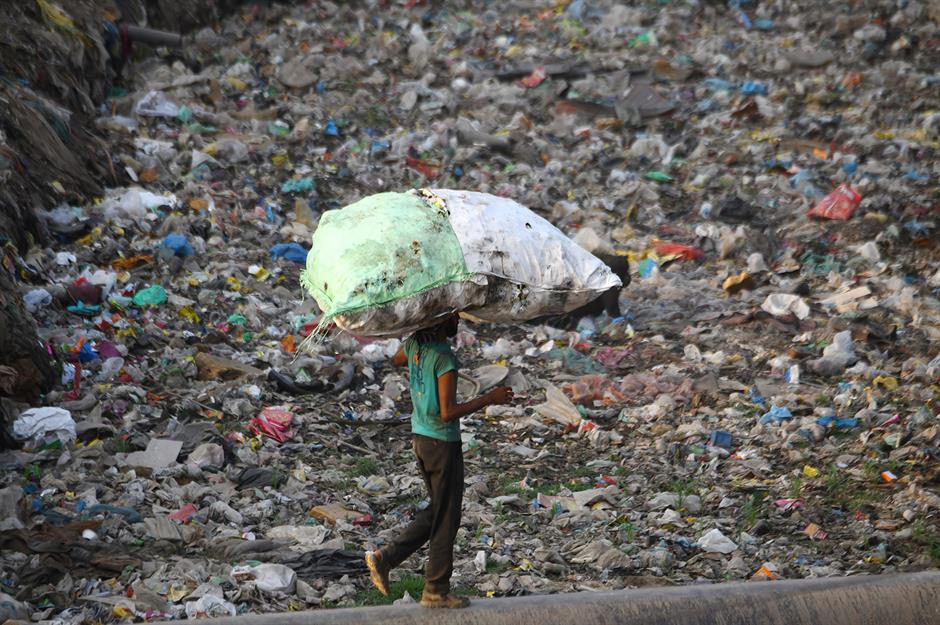
Following China’s ban, India’s scrap plastic imports almost trebled, soaring from 12,000 tonnes per month in 2016 to 35,000 tonnes per month in mid-2018 according to a Greenpeace report.
The country was overwhelmed by the quantity, with too few recycling facilities in place to manage the waste properly.
Sponsored Content
India
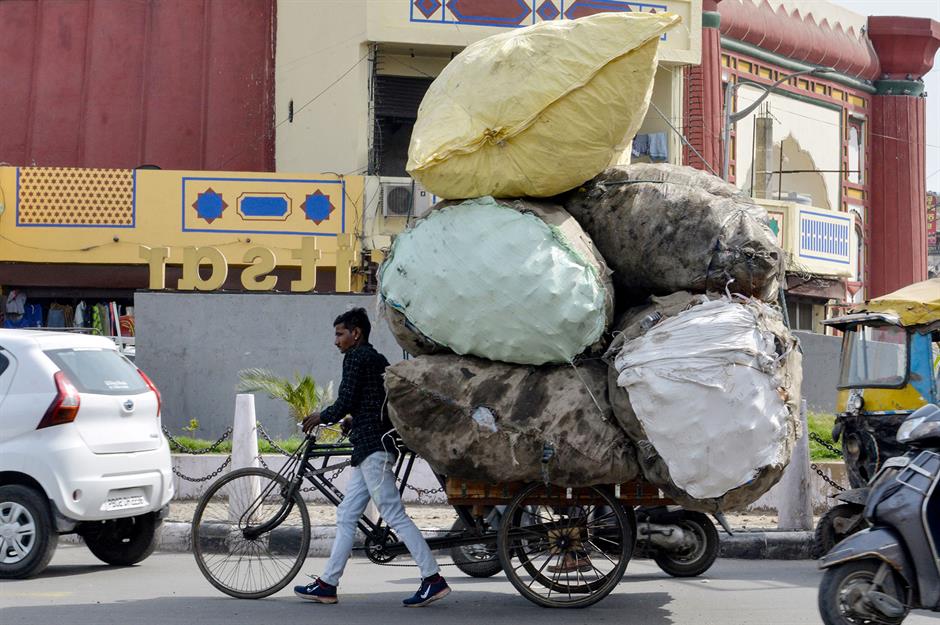
India is struggling to deal with its own rubbish, let alone that of other countries. According to the Central Pollution Control Board, 40% of the 25,940 tonnes of plastic waste produced per day in India remains uncollected, often piling up in streets.
In March 2019, the government followed China’s lead and announced a ban on all solid plastic waste imports. India had also set the ambitious goal of phasing out single-use plastics by 2022 but the COVID-19 pandemic – which saw the global reliance on single-use plastic explode as a means of preventing the spread of the virus – put paid to that.
Now, the country has far more modest ambitions, with the hotel chain Indian Hotels currently planning to phase out single-use plastic in its establishments by 2030.
India
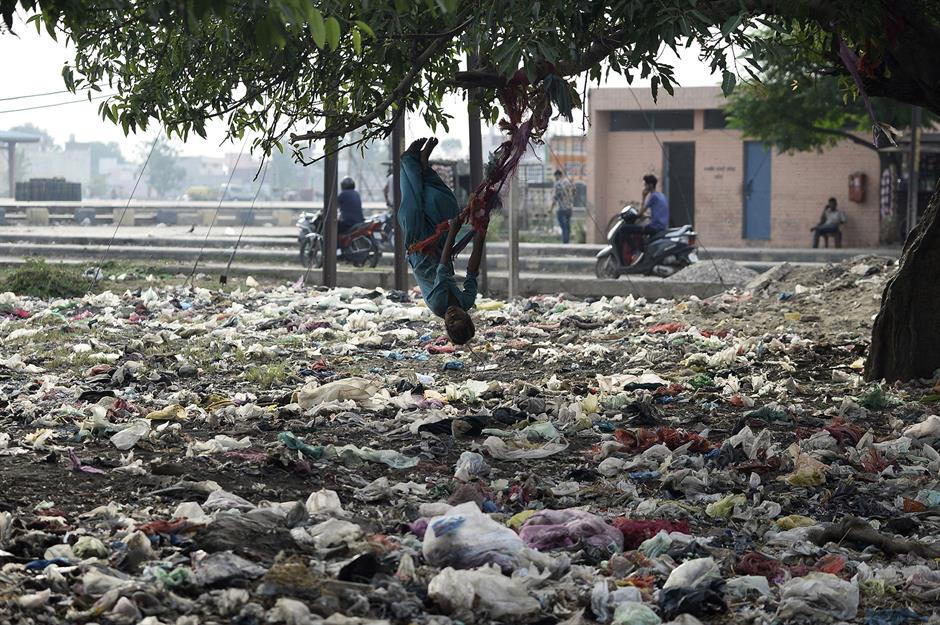
Plastic waste imports had already been banned in the country but there was an existing loophole that meant that Special Economic Zones (SEZs), or trading zones, in certain areas of the country were exempt and could accept imports.
That has since been addressed and India has a new policy that takes a hard-line stance on plastics. Unlike some other countries though, there have been no reported cases of India sending waste plastic imports back to their country of origin.
Republic of the Philippines
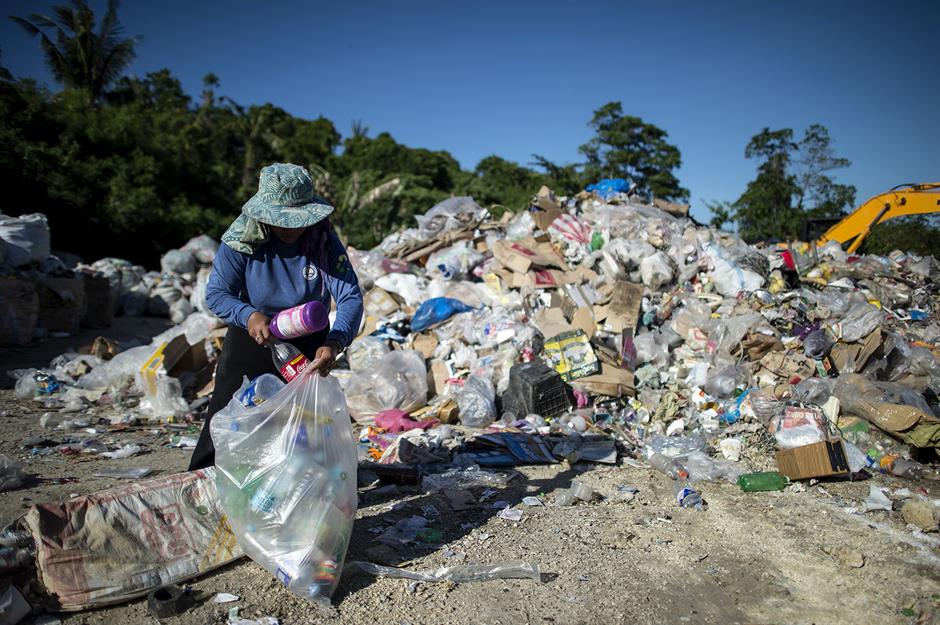
The Philippines, officially known as the Republic of the Philippines, hit the headlines in July 2019 after it transpired that the country had shipped containers filled with illegally dumped waste back to Canada.
Following a dispute that lasted three years, Philippine President Rodrigo Duterte decided to return 69 containers of waste that had been falsely labelled as recycling and were dumped between 2013 and 2014. In 2016, a Philippine court ruled that the import had been illegal.
Sponsored Content
Republic of the Philippines
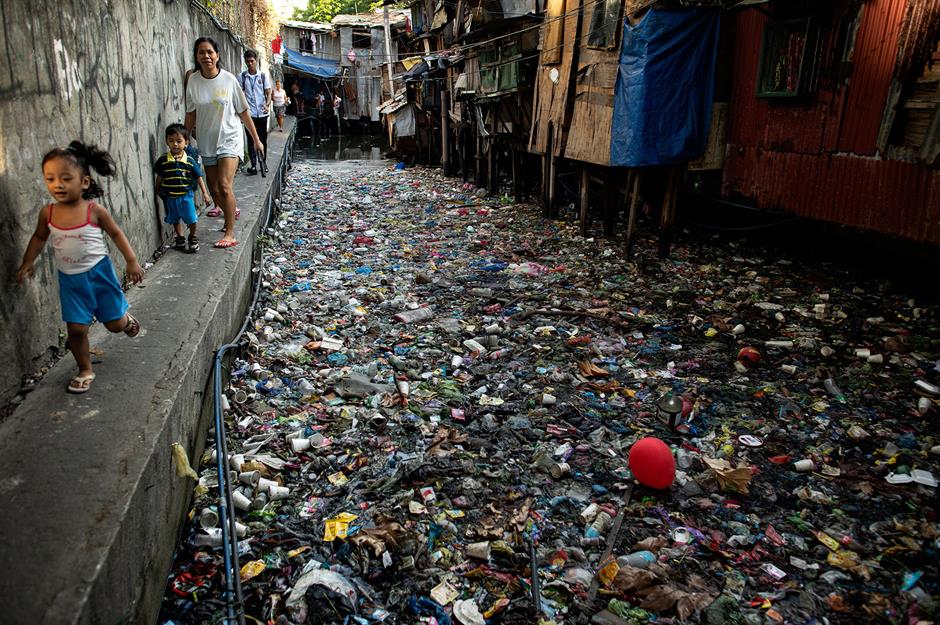
According to Greenpeace, the amount of waste imported into the Philippines more than doubled in two years, from 4,650 tonnes in 2016 to 11,900 tonnes in 2018.
It’s an increase that the country can't cope with; rubbish that's dumped in rivers can worsen the effects of regular floods, while coastal rubbish chokes birds and fish.
What’s more, the Philippines is struggling under the weight of it sown domestic waste. It currently supplies around one-third of the plastic waste in Asian oceans, which in itself constitutes a staggering 81% of global ocean plastic, according to a report last year from Our World in Data.
The Philippines
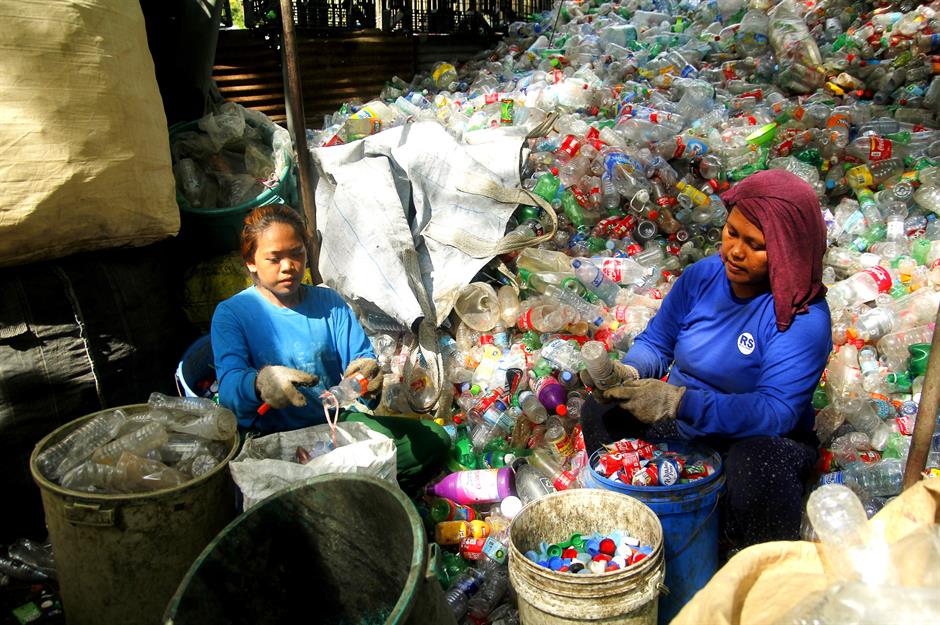
In 2019, the Philippines' Department of Environment and Natural Resources banned hazardous waste, including plastic, from entering the country.
However, rubbish that has been labelled as "for recycling" is still permitted to enter, opening up a potential loophole for illegal waste, according to Greenpeace Philippines' country director, Lea Guererro.
Taiwan
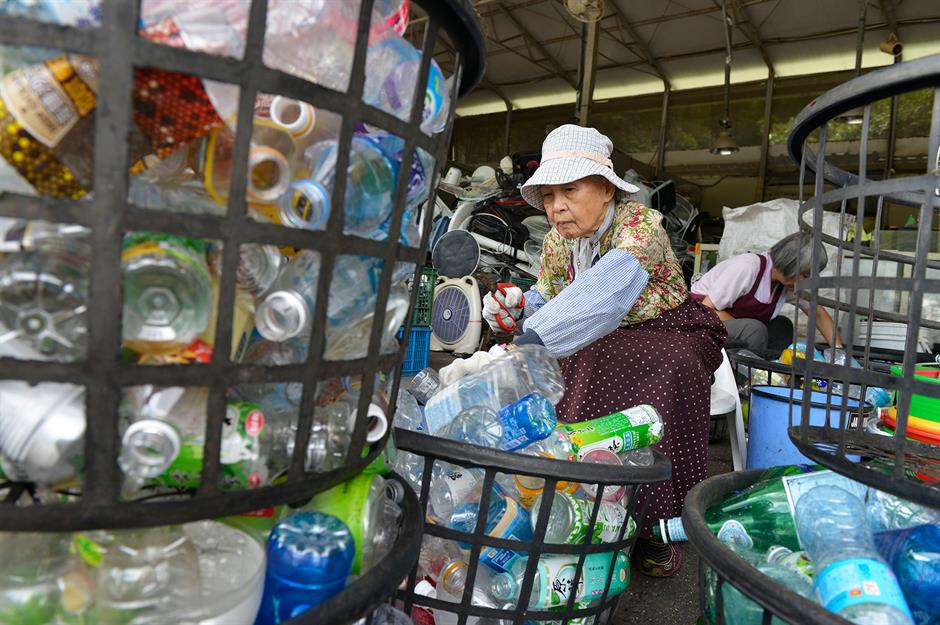
When it comes to domestic recycling, Taiwan is a success story in many ways.
Once known as "Garbage Island", it now has one of the highest recycling rates in the world, with 55% of all household waste being recycled. Yet the ban on plastic waste imports in mainland China has increased the amount of waste coming into Taiwan. Greenpeace reports that the figure went from 10,000 tonnes per month in mid-2017 to 50,000 tonnes per month in early 2018.
Sponsored Content
Taiwan
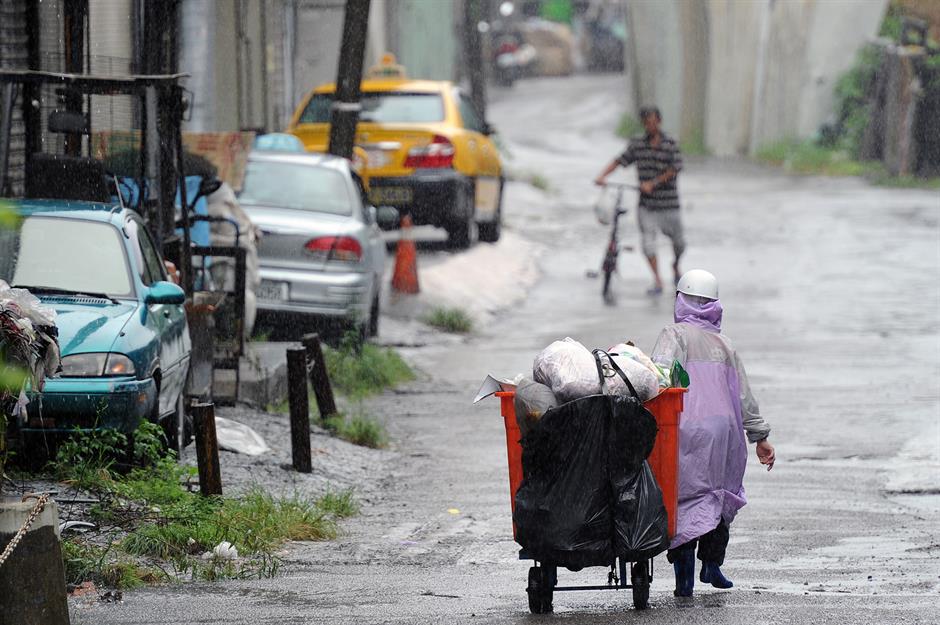
The rise in plastic scrap coming in has had a devastating impact. The streets of Taiwan are filled with elderly "recyclers", who collect materials to sell to local recycling centres in order to top up their old-age allowances, which are often too low to live off.
Yet as more plastic comes in from overseas, the value of the scrap drops, leading to a decline in collectors' wages and making it difficult for them to get by.
Taiwan
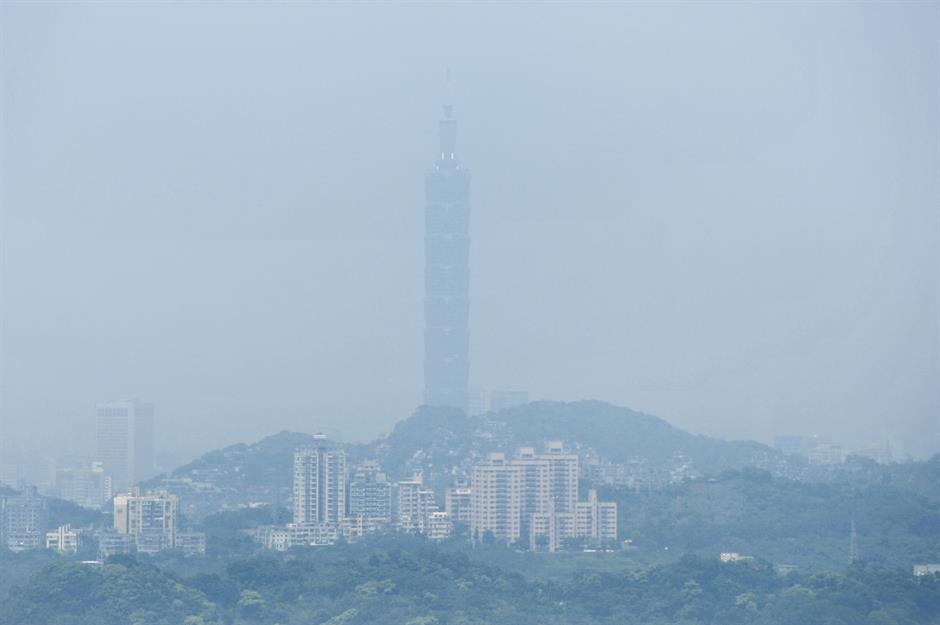
The problems don’t end there. The country’s chronic air pollution manifests in a blanket of smog that covers its western side for much of the year.
Plastic imports are only set to worsen this, as recycling facilities struggle to keep up and some plastic is simply burned in the open. In October 2018, regulations were introduced to limit the type of plastic that could be brought in to the country.
As a result, several major shipping companies decided to stop sending it, and imports fell to 20,000 tonnes per month according to data from Statista.
Poland
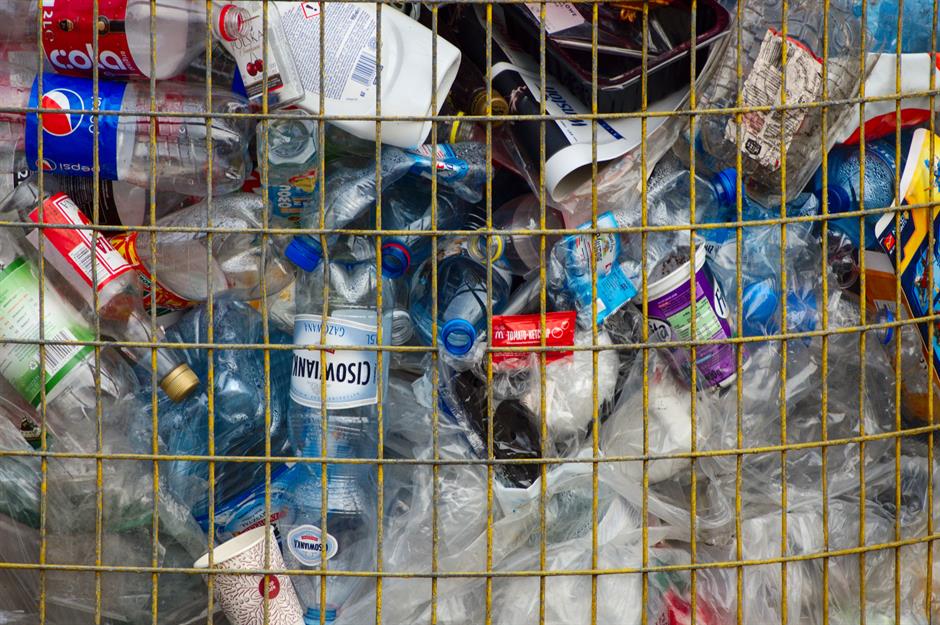
Poland also fell victim to illegal waste imports following China’s ban but the eastern European nation is taking a stand.
In August 2018, it emerged that the UK had delivered 1,000 tonnes of non-recyclable waste to Poland, including boxes, tins, detergent packaging, and even engine oil. The shipments, which had been falsely labelled as plastic for recycling, were swiftly returned to British shores.
Sponsored Content
Poland
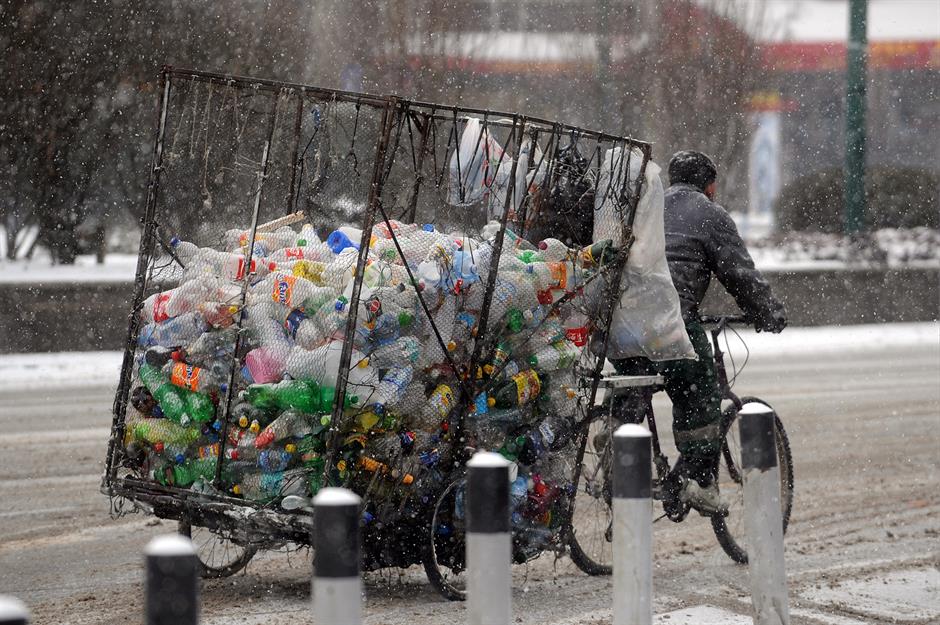
The plastic recycling industry does represent a viable source of income and jobs when correctly managed. But for years the laws were ineffective; they didn't impose a minimum price on plastic imported for recycling, meaning that criminal operators could often undercut legal operators.
Rather than recycling the waste, these illegal "recyclers" sent much of it to landfill or incinerated it.
Poland
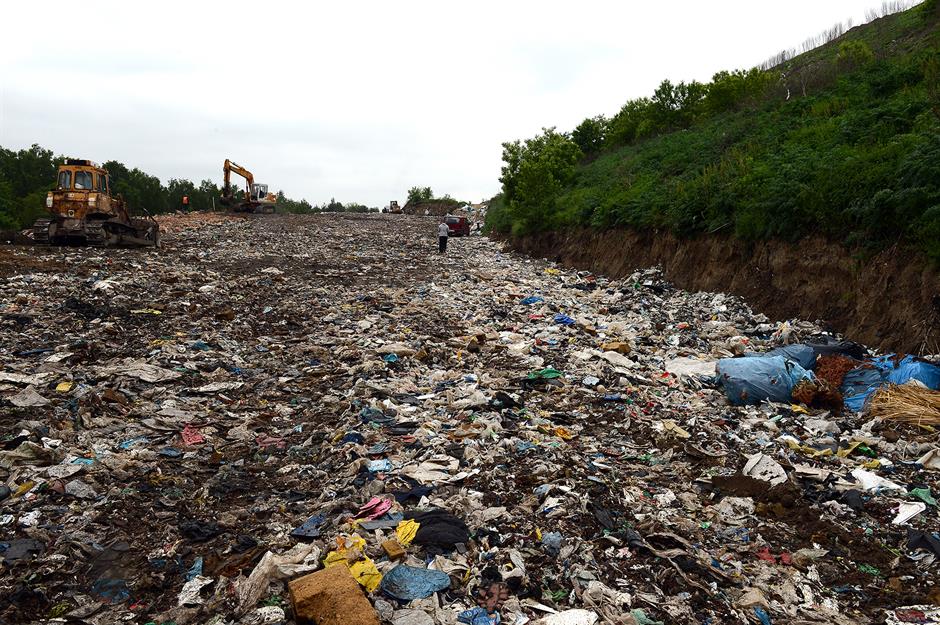
After 60 reported cases of landfill fires in the first half of 2018, the Polish government announced it would crack down on criminal activity. The prime minister submitted a bill to regulate waste disposal, meaning criminals would incur tough fines for dumping scrap at illegal sites and burning rubbish.
In March 2020, Poland signed an agreement with the Czech Republic stating they would work together to tackle illegal waste shipments. Just under two years later, the country announced that it would be adding further restrictions to "fight against environmental crime". The new restrictions will require shipments to be carefully registered, with any breaches resulting in fines of at least €4,350 ($4.8k/£3.6k).
Turkey
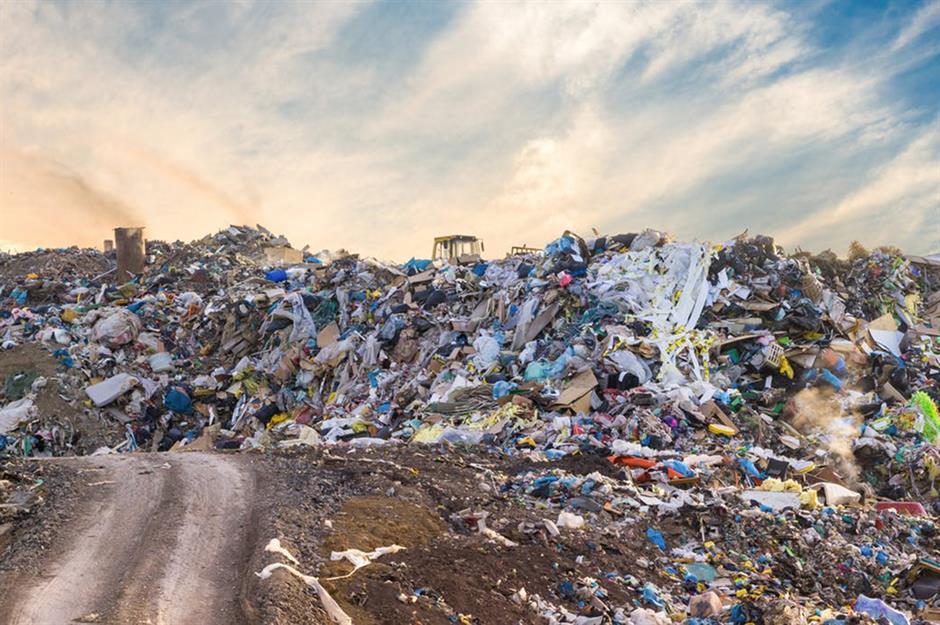
Another country that’s feeling the effects of China’s law is Turkey, where monthly plastic imports shot up from 4,000 tonnes in early 2016 to 33,000 tonnes in early 2018.
Although this figure fell back to 20,000 tonnes a month by mid-2018, it seems that the country, which is the eighth biggest plastic importer worldwide, remains attractive to exporters for its lack of restrictions around plastic waste.
Sponsored Content
Turkey
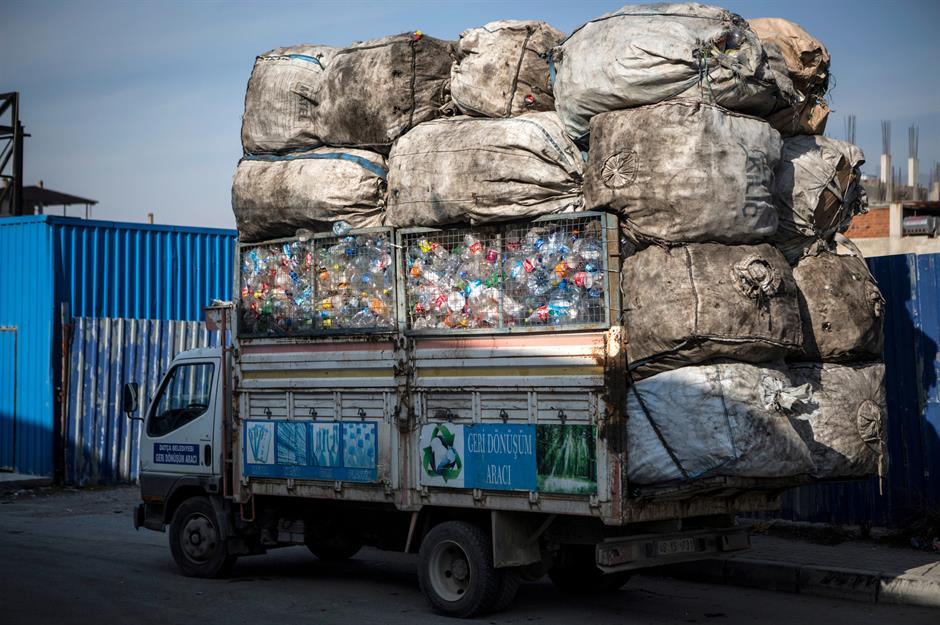
From an environmental perspective, this is worrying. Turkey, along with Chile, is one of just two countries worldwide that has seen its recycling rates decline since 2000; in fact, just 1% of Turkey's total waste was sent to recycling centres according to a 2015 Organisation for Economic Co-operation and Development report.
Some sources claim this number could even be a flat zero, although official figures claim that 47kg of waste per capita is recycled on average. With just 751 listed recycling plants and 566 collection sites, experts warn that Turkey simply does not have the facilities needed to cope with the influx of plastic imports.
Turkey
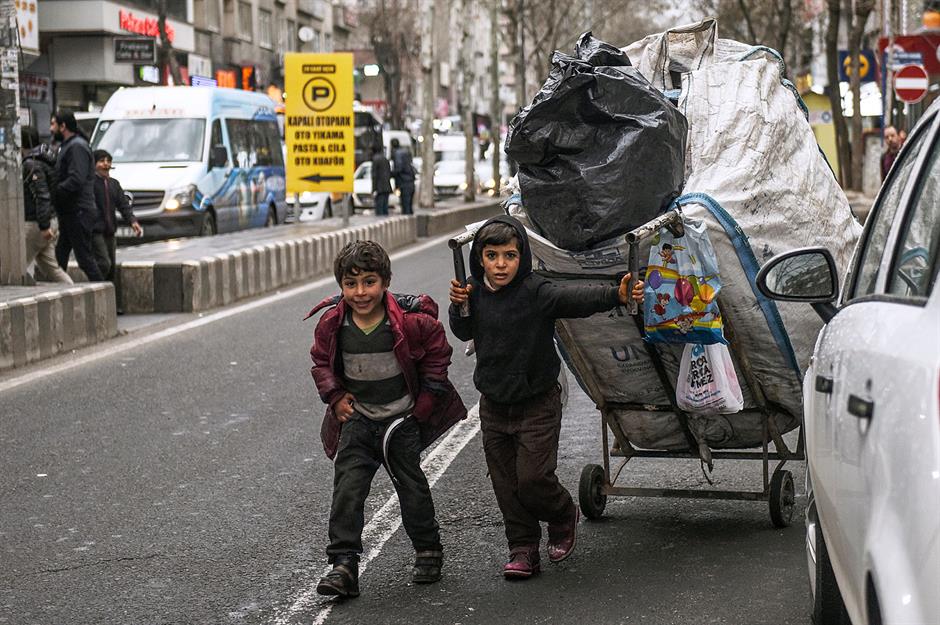
As in Taiwan, Turkish garbage pickers rely on collecting waste from the streets for their income, but the upsurge in plastic coming from other countries has reduced their earnings.
As well as creating social issues, imported plastic waste is likely to pile up on coastlines or leach into the sea, which is bad news for the country with the most polluted coastline in the Mediterranean. Turkey's Cilicia region has an estimated 31.3kg of waste per kilometre, according to reports.
Senegal
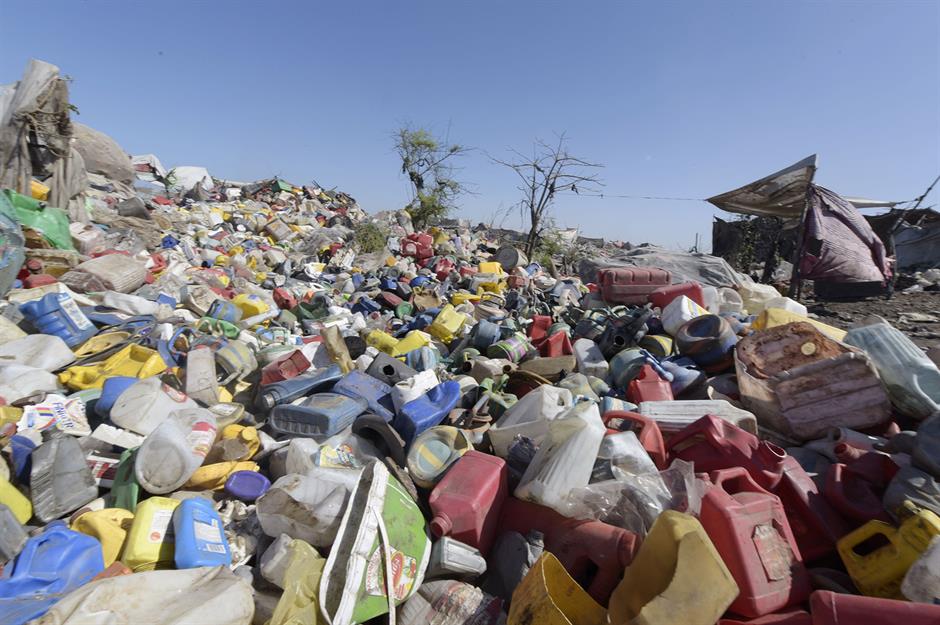
Located in west Africa, Senegal is one of the smaller players in the global plastic recycling trade – but that could all be about to change, as it has seen imports skyrocket since China’s ban.
According to the US Census Bureau, the average amount of plastic imported into the country each month from the US shot up to 1,000 tonnes between autumn 2018 and spring 2019.
Sponsored Content
Senegal
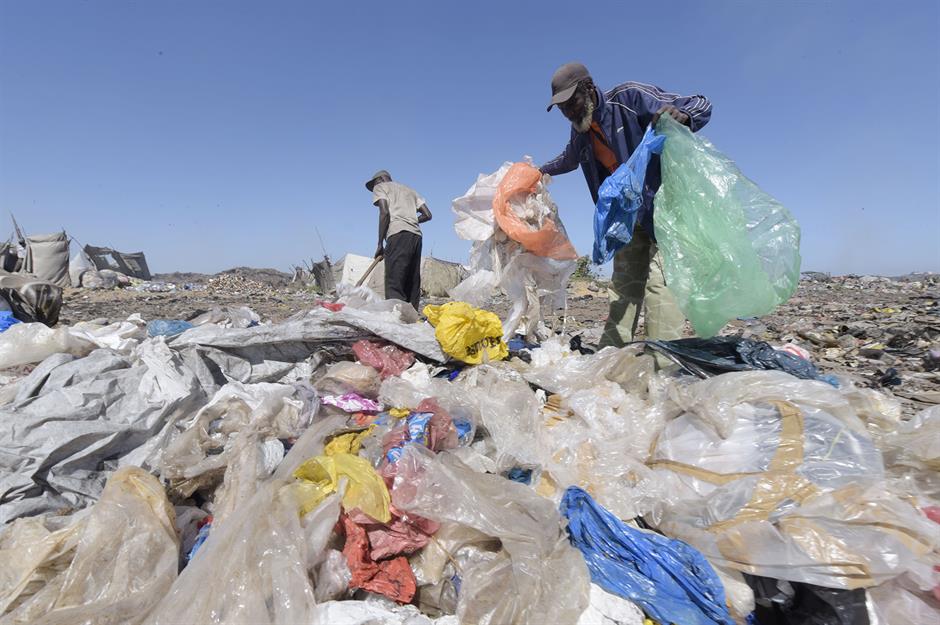
The recycling trade is a double-edged sword. On the one hand, it provides a livelihood for garbage collectors, who buy plastics to sell on to foreign companies. They can earn $10 (£8) a day doing this type of work, which is twice the national average wage.
On the other hand, however, it’s dangerous. In Mbeubeuss, a landfill near the Senegalese capital Dakar, workers are exposed to noxious fumes from burning tyres. Some workers rest on makeshift sleeping areas near the landfill, and injuries and even deaths due to collisions with garbage trucks are not uncommon.
Senegal
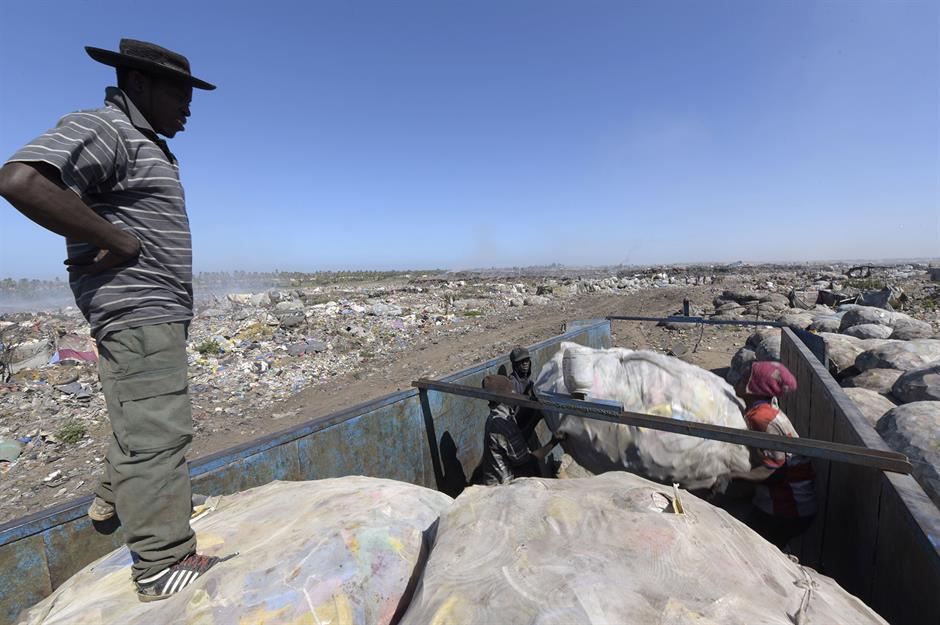
With one-third of the population living below the national poverty line, there’s also a lack of education about waste management, which has led to the burning and dumping of trash, often along coastlines. Single-use plastic has been widespread in the country with minimal public backlash.
Although Senegal apparently aims to recycle 50% of its domestic plastic by 2023, it's still drowning under the weight of its own waste – so the import of trash from other countries is deeply concerning.
Smaller importers
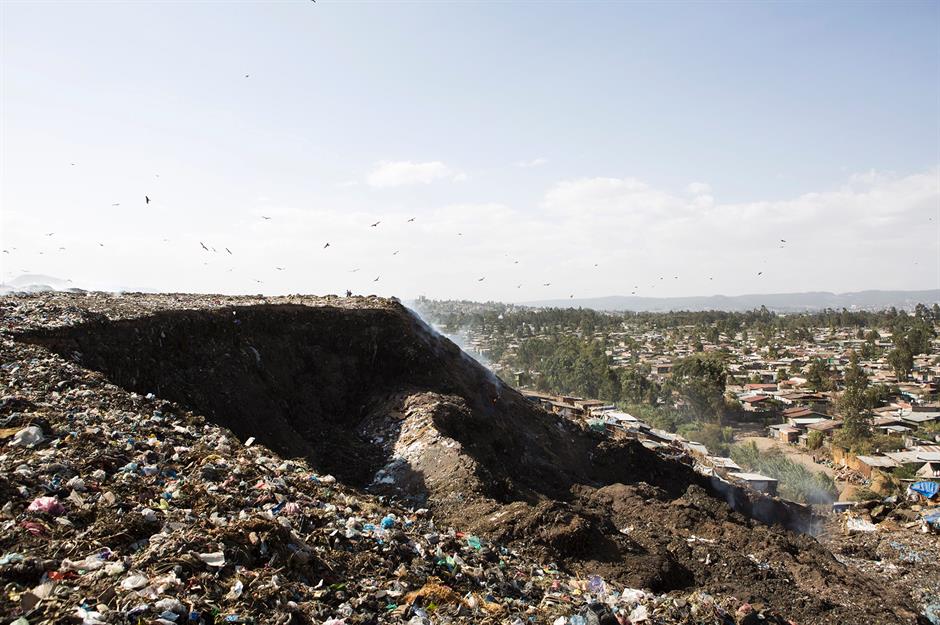
Despite accepting plastic scrap in lower quantities, Ghana, Ethiopia, Laos, Cambodia, and Ecuador have also all seen waste imports spike since the China ban. (Pictured here is a landfill site in Ethiopia.)
Worryingly, these nations lack restrictions on imports, have poor waste management infrastructure, and foster a growing industry of waste collectors. With more plastic being offloaded to poorer countries with little regulation, where it’s unlikely to get recycled, it’s clear that the global plastic trade needs to clean up its act.
Now read about the companies trying to rid the world of plastic waste.
Sponsored Content
Comments
Be the first to comment
Do you want to comment on this article? You need to be signed in for this feature